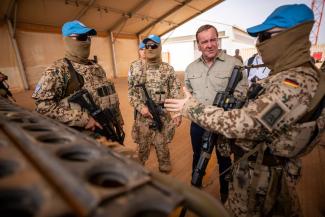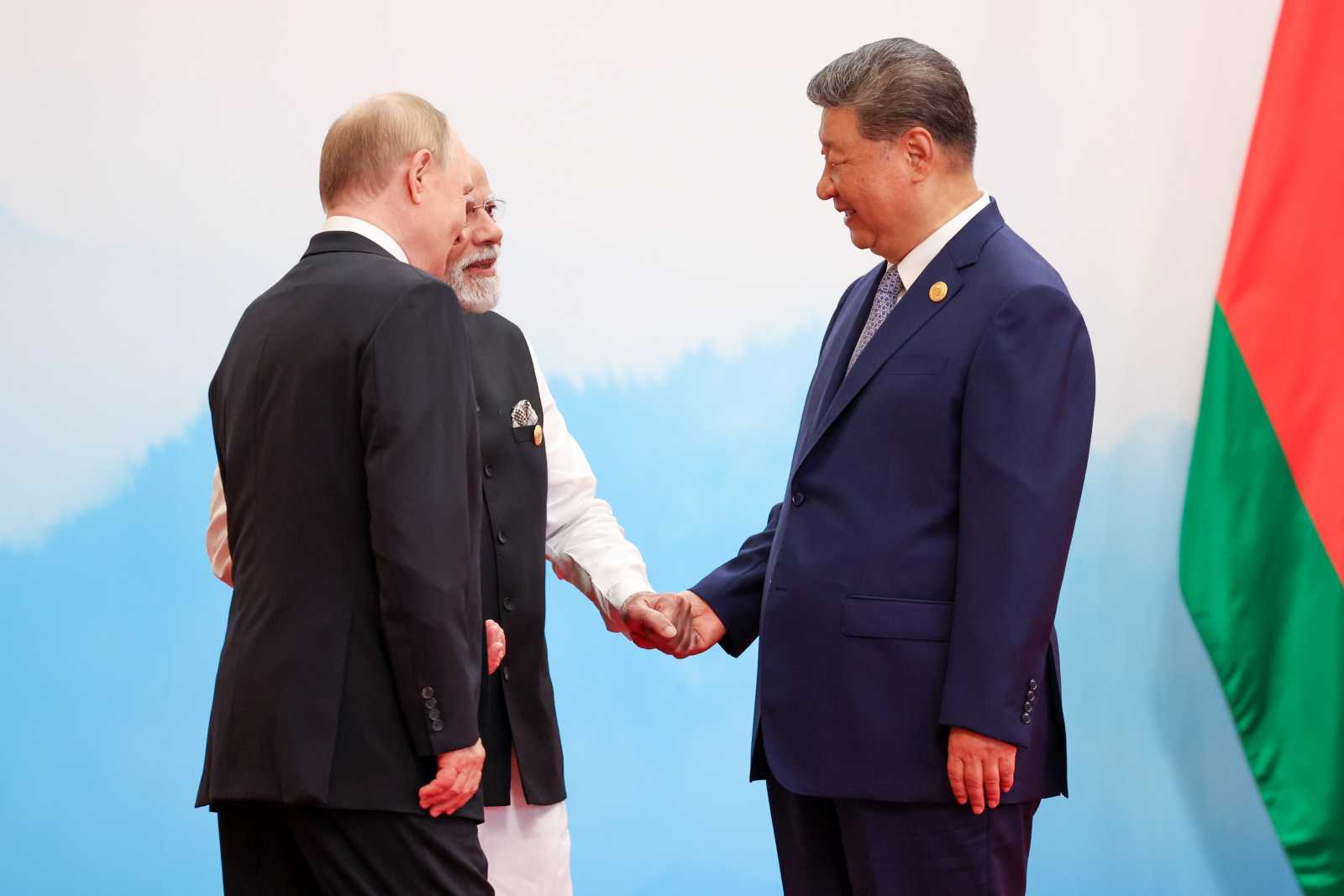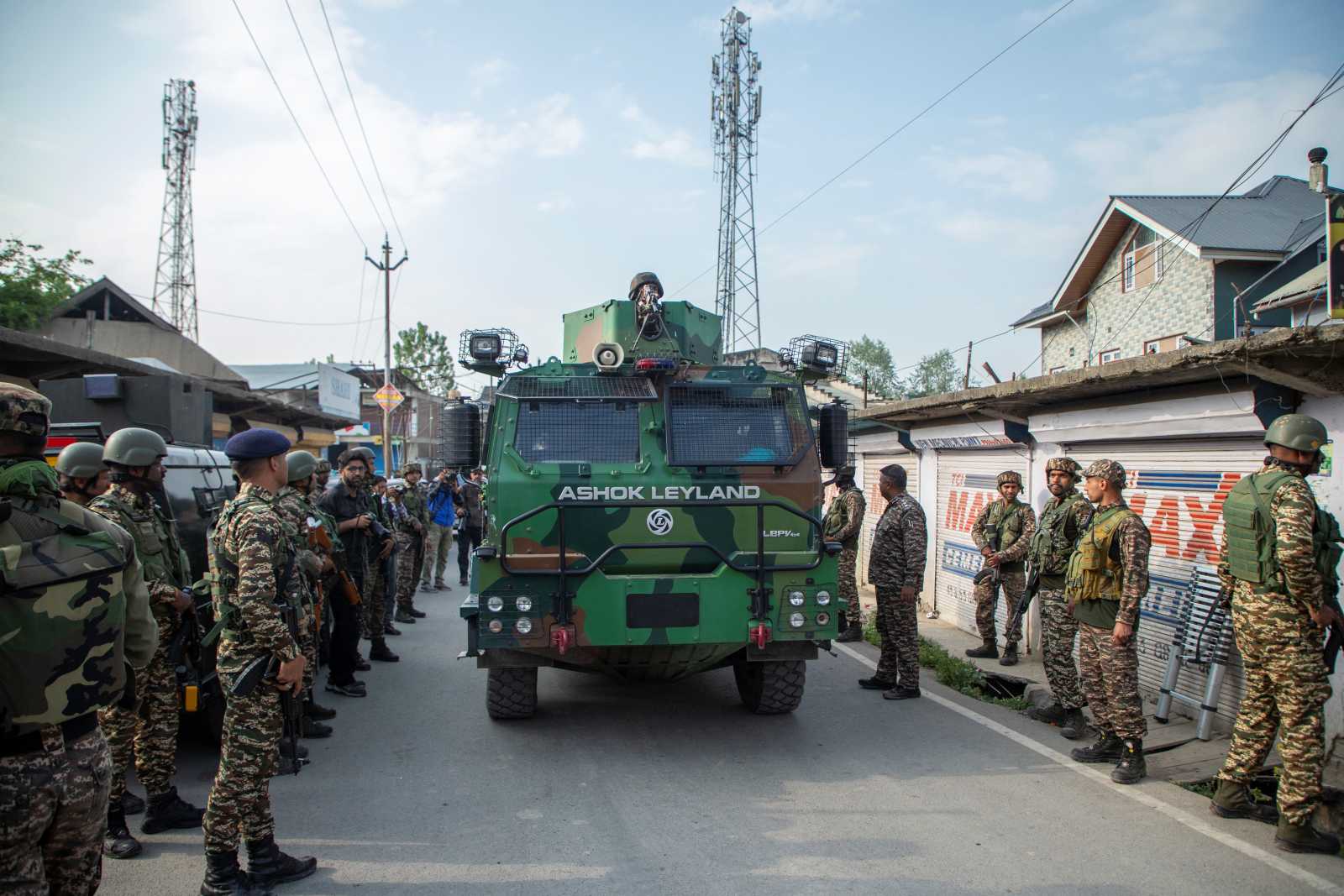Military deployment
German military stayed too long in Mali

In late May, Germany’s federal parliament, the Bundestag, extended German troops’ support of the UN Multidimensional Integrated Stabilization Mission in Mali (MINUSMA) for a final 12 months. The idea was to end Bundeswehr deployment there in May 2024. However, the UN Security Council has recently decided to terminate MINUSMA by the end of this year. The implication is that German troops must withdraw sooner.
That MINUSMA is no longer welcome in Mali has been obvious for some time. Accordingly, German troops actually should already have left. In 2013, they were sent to Mali to support Germany’s close ally France. Though French troops withdrew a while ago, their German counterparts are still there.
Since the most recent coup in 2021, a military regime has been running Mali. It is known to make things difficult for the Bundeswehr, for example by prohibiting the use of drones or not permitting flights to resupply the German camp. Indeed, the German military had to temporarily suspend its mission because sensible operations had become impossible.
Wagner mercenaries in Mali
MINUSMA was meant to stabilise the country in view of Islamist extremism and protect the people from militia violence. The current regime’s policies are thwarting such efforts. It has invited up to 2000 mercenaries of Wagner, the Russian military-service provider, and it no longer allows MINUSMA access to parts of its territory. The government in Moscow is keen on expanding its influence in Africa and happily grasped the opportunity its Malian counterpart offered.
These developments have made the German troops’ mission futile. Sadly, the Federal Government failed to learn the lessons of Afghanistan. The Bundeswehr should have withdrawn from there when the International Security Assistance Force (ISAF) concluded its mission in 2014. At that point, the French troops left. The German contingent, by contrast, stayed until the bitter end.
When the last French soldier departed from Mali in 2022, that should have been the signal for Germany to withdraw its troops as well. The full truth is that Bundeswehr troops do not even have the equipment they would need to operate effectively without their French partners in Mali.
They stayed, nonetheless. The reason was policymakers’ concern that Germany might appear to be unreliable. In particular, the Federal Foreign Office is worried about Germany’s reputation. The Bundeswehr therefore basically fortified its Camp Castor near Gao and hardly left it anymore. However, the local people appreciate its presence in view of the protection it provided in the past. The regime in Bamako, however, does not take sensitivities of this kind into account.
Leaving Camp Castor
Now Germany’s troops must withdraw in only half the time the Bundestag wanted to give them. Hopefully, every soldier will return home safe. The Bundeswehr is professional, so that looks feasible, though it will not be easy. Camp Castor is like a small town, with a church, a hospital and a post office on about one square kilometre. Some 1500 people live here, including some international allies. The greatest challenge, of course, is to ensure that none of the many and diverse weapons end up in the wrong hands.
Mali is no longer a reliable partner, so MINUSMA has looked outdated for a while. So far, Germany has been considering Niger a partner for stabilising the region, though that may change after the coup attempt in late July. Germany has been involved in training special forces there and started participating in a new military EU mission on invitation by Niger’s government. In contrast to the mission in Mali, however, it is limited to only rather few troops. Even if it does not last, it may prove the model for future deployments outside NATO territory
Russia’s attack on Ukraine has changed German policymakers’ view of the world. The alliance’s eastern borders are now the top priority. With the withdrawal from Mali, a 30-year era of major foreign deployments is ending. What matters most now is the defence of Germany and the NATO.
André Uzulis is the editor-in-chief of loyal, a German monthly with a focus on security policy.
andre.uzulis@fazit.de
Update: The editorial team updated the second last paragraph on 28 July.













